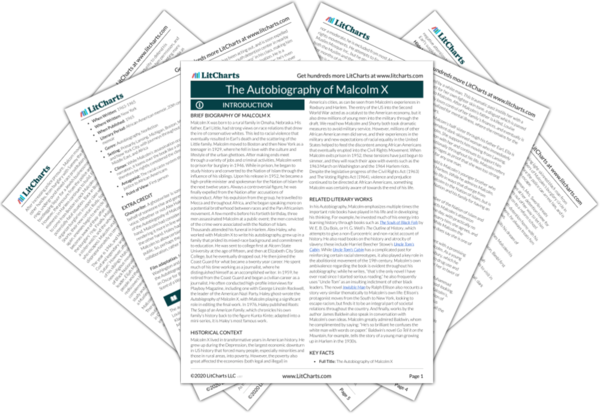Elijah Muhammad’s teachings about the “whitening” of history really struck a chord with
Malcolm and thousands of other black people who could remember there being no mention of black people in their history books as children, other than as racist caricatures. Therefore, Malcolm resolves to focus particular attention on history books that explore the history of black people in Africa and in America. These include Carter G. Woodson’s
Negro History,
The Outline of History by H. G. Wells, and
The Souls of Black Folk by W. E. B. Du Bois. Malcolm is also drawn to genetics, and reads Gregor Mendel’s
Findings in Genetics, which reinforce Malcolm’s belief in Elijah Muhammad’s teachings.
